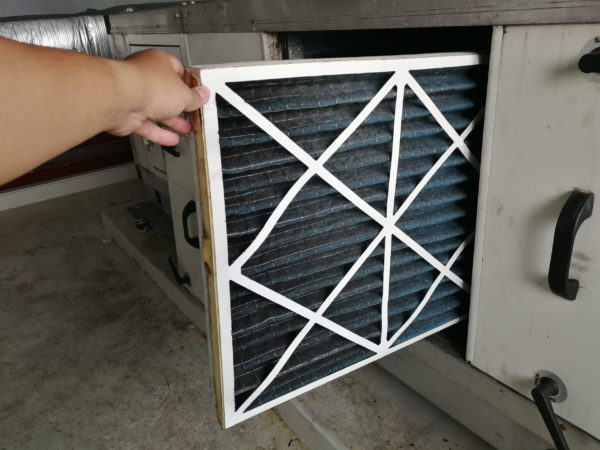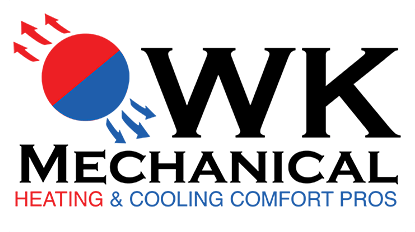
First, HEPA is a type of filter, and MERV is a way to rate filters. MERV stands for “minimum efficiency reporting value,” which is the value given to filters by the American Society of Heating, Refrigeration, and Air-Conditioning Engineers, or ASHRAE. HEPA stands for “high-efficiency particulate air.”
What Is a HEPA Filter?
A HEPA filter is considered the gold standard of air filters among our HVAC professionals at WK Mechanical, Inc.. This type of filter is able to take out 99.97% of particles with a 0.3-micron diameter. This is considered the hardest particle to capture. HEPA filters prevent pollen, dust, mold spores, bacteria, fine particulate matter, and even certain viruses from invading the air circulating in your home.
There are three ways HEPA filters capture particles. Particles larger than 10 microns are pulled into the filter and held between two fibers. This is called straining. If the particles are smaller than 10 microns, they can fit in the spaces between the fibers, but they are generally too heavy to get free of the filter. This is called interception. Truly tiny particles that are less than 0.3 microns enter the fibers and are bounced around by air molecules in what’s called Brownian motion. Brownian motion prevents the particles from finding a straight line through the filter fibers, and they get stuck like larger particles. This is diffusion. A particle that’s 0.3 microns is the hardest for the HEPA filter to capture because it’s not subject to Brownian motion, but it’s not big enough for straining.
The two types of pollutants that HEPA filters aren’t very good at capturing are gases and volatile organic compounds, which move differently from particles and can escape the net of filters.
What Is MERV?
MERV rates filters by the particles they can capture. Filters are rated from MERV 1 to MERV 20, with HEPA filters having ratings from MERV 17 to MERV 20. A filter with a MERV 17 rating can trap 99.97% of particles that are between 0.3 and 1.0 microns. If it has a MERV 20 rating, it can trap 99.999% of the same particles. ULPA or Ultra-Low Particulate Air filters are also highly rated. Filters rated this high are used in surgical theaters and places where carcinogenic or radioactive items are stored or handled.
Other types of air filters have much lower ratings. Those made of fiberglass or aluminum mesh are usually rated between MERV 1 and 4. These types of filters can take out dust mites, pollen, and pet dander but are not good at trapping anything under 10 microns in diameter. They are usually found in home furnaces, as pre-filters in commercial buildings, and in window ACs.
Disposable filters usually have a rating of between MERV 5 and 7. These filters are also used in commercial buildings as well as residences. You’ll also find them in factories and paint booths.
Home box filters, with can remove automobile and welding fumes from the air, are rated between MERVE 8 and MERV 12. They’re found in residential buildings and commercial buildings whose air quality must be above average, such as laboratories. The next are commercial filters, which are used to remove bacteria and respiratory droplets. The rating of these filters ranges between MERV 12 and MERV 16. Because they are so efficient at removing particles, you’ll find them in hospitals.
Though HEPA filters are tempting to purchase for your home, and it seems that everyone and everything has them, including vacuum cleaners, most HVAC professionals recommend filters with a MERV of about 13. This will remove a good amount of pollutants and keep the quality of your indoor air relatively high. The problem with filters that have a higher MERV rating is that they cut down on airflow, which stresses your HVAC system and results in higher energy bills. Filters with higher MERV ratings also need to be changed more frequently. You also need to know if your HVAC system can even accommodate a filter with a high MERV rating.
Call Us for More Information
WK Mechanical, Inc. HVAC technicians have been serving our Hudson Valley, New York customers since 1945. We are not only pleased to help you choose the right HVAC system, including filters, for your home but offer other HVAC services. These include commercial HVAC, boiler and generator service, and heat pumps. Ask us about our maintenance agreement. Call today for more information about air filters.

